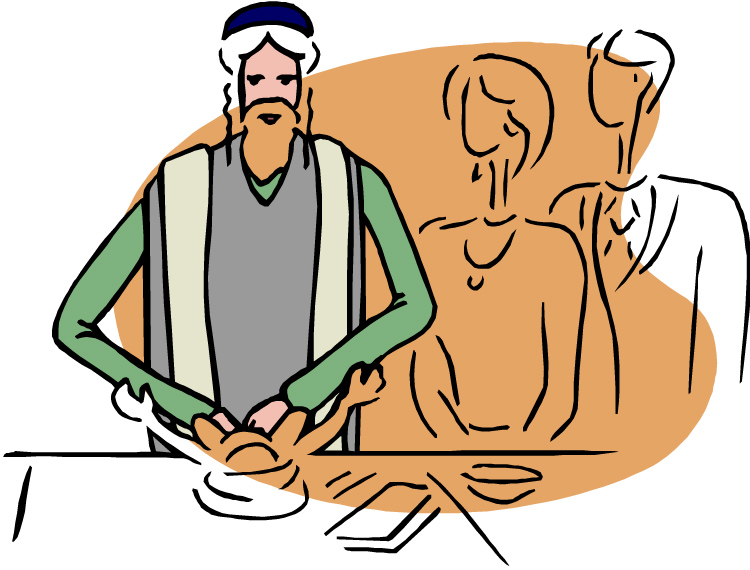
Deuteronomy 10:1–2, Hew…two tablets…I will write. The first set of tablets YHVH not only hewed out himself but he also wrote on them the ten statements (Exod 24:12; 31:18; 32:16), while YHVH had Moses hew out the second set of tablets upon which YHVH then wrote the ten statements. Why didn’t YHVH hew out the second set of tablets as he had done with the first ones?
One reason is this. The two stone tablets are symbols of the human heart which is divided into two main sections: the left and right ventricles. In Scripture, the heart represent the essence of a person’s moral character and mind (Exod 9:7; Deut 30:6; Job 38:36; Pss 44:21; 64:6; Prov 12:20; 14:33; 15:14; Jer 9:26; 17:9, 10; Matt 12:34; 15:19; Acts 2:37; Rom 10:10; 1 Cor 2:9; Heb 4:12; 1 Pet 3:4). The human heart can be hard, like stone (Job 41:24; Ezek 11:19; 36:26; 2 Cor 3:3) or soft like flesh (2 Cor 3:3 cp. Acts 2:37; Heb 8:10; 10:16). It is upon the human heart that YHVH writes his laws (Ps 40:8; Jer 31:33; Ezek 11:19–20; 2 Cor 3:3; Heb 8:10; 10:16).
When YHVH creates a person, he initially embeds in the human heart or conscience a basic concept of morality or of right and wrong, that is, the basic tenets of his laws (Rom 2:14–15 cp. 2 Cor 5:11).
Once sin comes into a person’s life and a person choose to go against the laws of Elohim that he has written in their as yet undefiled heart, they are a pure vessel like the first set of stone tablets that YHVH made and upon which he wrote his laws.
However, when sin enters a person’s life and they go against their conscience or the laws that YHVH wrote on their hearts when they were created, man’s heart becomes defiled and hardened by sin.
At some point along the way, a person has to make a choice to either remain in his sin-hardened heart condition, or yield to the conviction of the Spirit of Elohim (John 16:8), and be cut to the heart and repent of his sin (Acts 2:37). If a person makes the latter choice, then YHVH will give the person a new or circumcised heart upon which he will write his laws anew.
However the choice to change from a stoney heart to a heart of flesh is that of the person. That’s why YHVH had Moses cut out the second set of tablets upon which YHVH then wrote his laws again.
The children of Israel are a biblical metaphor representing each of us. YHVH gave Israel his laws at Mount Sinai, and when they then sinned at the golden calf, their hearts became hardened against Elohim. They then had to repent of their sin, and make the choice to obey YHVH’s commandments. This was represented by the second set of tablets upon which YHVH wrote his laws again, but this time on a heart of flesh. After the sin of the golden calf, Israel remained faithful to Elohim until after the death of Joshua (Josh 24:31; Judg 2:2). Similarly, each of us was created as a pure, undefiled and sin-free vessel at the time of our birth. Eventually we committed our first sin and we went downhill spiritually from there. At some point, we became awakened to our sinful state and chose to repent of our sin and submitted ourselves to obey the Word of Elohim (Yeshua the Messiah) and receive his Spirit. That’s when YHVH wrote on the second set of stone tablets and began to write his laws on our hearts again.




